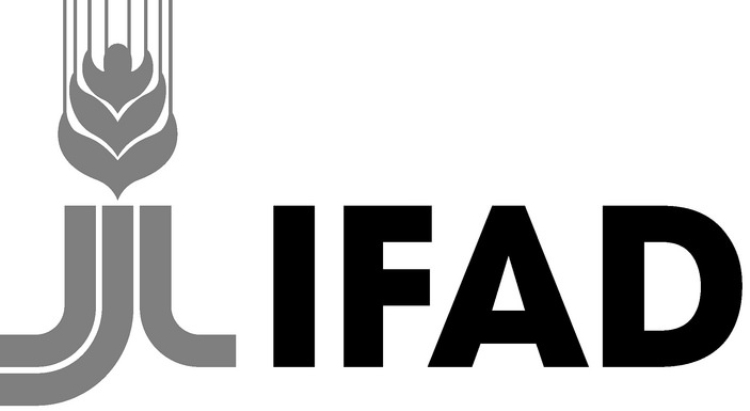IFAD Launches Asia-Pacific HQ to Boost Rural Investment and Green Jobs
The Bangkok-based office now positions IFAD to respond more swiftly and effectively to the unique challenges and opportunities across the Asia-Pacific region, home to over half the world’s rural population.

- Country:
- Thailand
The International Fund for Agricultural Development (IFAD) has officially launched its Asia and the Pacific Regional Office in Bangkok, Thailand, marking a significant milestone in global efforts to transform rural economies and tackle poverty in one of the world's most dynamic but vulnerable regions.
In its first high-level dialogue, IFAD brought together diplomats, development leaders, and regional partners to discuss how the organization will leverage its expanded regional presence to catalyze sustainable investment, green job creation, and digital innovation. The gathering underscored IFAD's ambition to serve not only as a financial institution but also as an investment platform and convening force, fostering deeper public-private partnerships for rural prosperity.
A New Era for Rural Development in Asia-Pacific
The Bangkok-based office now positions IFAD to respond more swiftly and effectively to the unique challenges and opportunities across the Asia-Pacific region, home to over half the world's rural population.
"With our new regional office, IFAD is better positioned to act as an assembler of finance, foster innovation, and forge partnerships that deliver lasting impact for rural communities," said Pieternel Boogaard, Managing Director of IFAD's Office of Technical Delivery.
She emphasized that IFAD will use this platform to support first-mile delivery systems that empower small-scale farmers to access markets, boost incomes, and scale up rural finance, with a special focus on women and youth.
Strategic Vision: Climate Resilience, Innovation, and Inclusion
Reehana Raza, IFAD's Regional Director for Asia and the Pacific, outlined a bold agenda to equip rural communities with the tools and resources to navigate the dual challenges of climate change and economic inequality.
"Asia and the Pacific is a region of immense opportunity, but also immense vulnerability," Raza noted. "We aim to intensify our focus on digital inclusion, climate-smart agriculture, and green employment pathways—especially for youth—to ensure development gains are resilient and inclusive."
She stressed that achieving sustainable rural transformation in Asia-Pacific is vital to ensuring regional food security, reducing migration pressures, and strengthening economic resilience amid growing climate volatility.
Largest IFAD Investment Portfolio Globally
IFAD currently implements over 50 active programmes across 20 countries in Asia and the Pacific — the largest regional portfolio in IFAD's global operations — representing US$2.8 billion in loans and grants. By the end of 2024, these programmes had reached more than 40 million rural people, improving agricultural productivity, infrastructure access, climate resilience, and financial inclusion.
On-the-Ground Impact: Country Success Stories
Country directors from Bangladesh, India, Fiji, and Pakistan shared key success stories from IFAD-supported programmes:
-
In Bangladesh, IFAD helped strengthen agricultural value chains, creating more resilient food systems and job opportunities in flood-prone areas.
-
In India, investments in women-led self-help groups and microenterprises significantly increased household income and reduced gender disparities.
-
In Fiji, digital solutions and youth training programmes have helped create new employment pathways in climate-sensitive areas.
-
In Pakistan, IFAD's rural finance initiatives improved access to credit, empowering smallholders and entrepreneurs in underserved communities.
These field insights highlighted IFAD's comparative advantage: designing and implementing context-specific, scalable models that uplift rural populations and promote inclusive economic growth.
Mobilizing Private Sector and Green Investment
The Bangkok dialogue also explored how IFAD will expand its role as a catalyst for private sector engagement. Through its new regional office, IFAD plans to unlock greater co-financing opportunities with commercial and development partners for:
-
Green infrastructure and clean energy projects
-
Agri-tech and rural digital transformation
-
Climate-smart agriculture and nature-based solutions
IFAD's partners stressed that scaling private capital and innovation into rural areas is essential for achieving the Sustainable Development Goals (SDGs) and ensuring long-term rural transformation.
Evidence of Impact: IFAD's Global Results
According to IFAD's latest global Impact Assessment (2022–2024), investments in rural development delivered measurable improvements:
-
Production growth increased by over 30%
-
Access to markets and infrastructure expanded significantly
-
Household incomes rose, especially among female-headed households
These results reaffirm that targeted investments in rural economies yield high returns in terms of poverty reduction, gender equality, and resilience to climate shocks.
A Future-Oriented Vision for Rural Asia-Pacific
The establishment of the Bangkok office reflects IFAD's growing commitment to decentralized decision-making, local knowledge-sharing, and enhanced regional responsiveness. The organization aims to become a center of excellence for rural innovation, combining finance, policy expertise, and capacity-building in one unified approach.
The Bangkok dialogue ended with a shared call for stronger cross-sector collaboration, urging governments, private investors, and development partners to join forces to unlock rural potential.
"To build lasting prosperity, we must prioritize the first mile — where rural lives and livelihoods begin," Boogaard said.
ALSO READ
-
Golf Glory: Asia-Pacific Amateur Kicks Off with Intense Competition
-
ADB and Japan FSA Partner to Strengthen Financial Systems Across Asia-Pacific
-
Rising Stars: Indian Golfers Eye Glory at Asia-Pacific Amateur Championship
-
Trump's Dual Strategy: Trade and Defense in Asia-Pacific
-
Gyeongju Gears Up: Asia-Pacific Economic Powerhouses Converge









